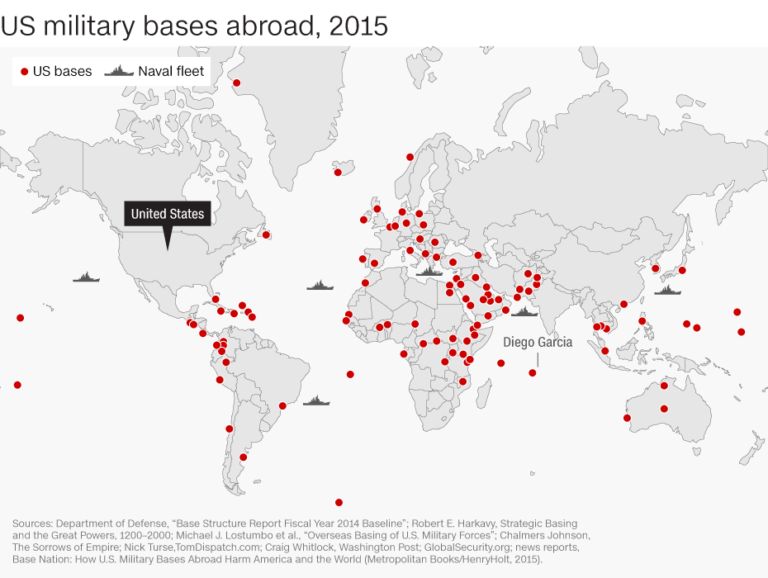Part
01
of two
Part
01
Is the US president the most powerful man in the world?
Key Takeaways
- While the US president controls the federal executive branch, which employs four million people, they can only be elected for two terms, or eight years.
- For Forbes, the US president ranked 3rd most powerful in the world in 2018, and second in 2016.
- Elon Musk has a strong influence in several key global industries: social media, space travel, autonomous driving, electric transportation, and artificial intelligence. According to CNN, he's the most powerful person in the world.
Introduction
This research provides an overview of the key powers the US president has, the limits to their power, and the geopolitical and economic context of that power. Ultimately, the US president may be among the top three most powerful people in the world, depending on the criteria used.
Key Powers of the US President
- The president of the US is the head of state, head of government, and commander-in-chief of the country's armed forces.
- She or he is able to execute and enforce laws already created by Congress.
- They appoint the members of the president's cabinet.
- They control the federal executive branch, which employs four million people.
- They can receive ambassadors from other countries and thereby recognize states.
- The president can issue executive agreements with other governments, which are valid so long as Congress doesn't object.
- The president has full authority over the CIA and EPA. They also appoint the heads of over 50 federal commissions, such as the Federal Reserve Board or the Securities and Exchange Commission.
- For example, President Biden, on his first full day in office, signed 10 executive orders aimed at improving the country's pandemic response.
- Another example is how Donald Trump managed to withdraw the US from several multilateral agreements, including the Paris climate agreement.
Key Power Limitations of the US President
- US presidents can only be limited for two terms.
- While the president can pardon people and name federal justices, these decisions must be approved by the Senate.
- The US president can't introduce legislative bills. They can only talk about a topic and pressure Congress to act.
- The president can veto a bill, but that can be overridden with a two-thirds majority in the House and the Senate. Only 7% of presidential vetoes have been successful for this reason.
- The president can also pass executive orders with the power of law, but these can also be overturned in court, or Congress can pass a countering law. The next president can revoke the order.
- The US president can't declare war - that is up to Congress. They also can't determine how federal money will be spent, nor interpret laws.
- Donald Trump's agenda, for example, was limited by Congress and members of his own party in Congress, and investigations by law enforcement agencies as well as media critique and scandals had some limiting effect.
- Another example is the double impeachment of Donald Trump, though it is debatable how much that limited his power.
- Also, the Supreme Court blocked President Biden's vaccine mandate for large employers.
- A final example is how Senator Joe Manchin whittled down President Biden's Build Back Better Agenda. The $6 trillion social spending plan became $1.75 trillion after the senator had the deciding vote in an evenly split Senate.
US Presidential Power - Context
- Forbes measures individual global power in four ways: power over people, financial resources (where GDP counted for heads of state), power in multiple spheres (e.g., various industries), and active use of the power. By those standards, it ranked the US president in 2018 as #3 most powerful in the world, after the presidents of China and Russia. In 2016, Russian President Vladimir Putin was ranked number 1, and the US president was second. Forbes has not compiled such lists more recently.
- However, each entity has different criteria for measuring power, and for CNN, in April this year, Elon Musk was the most powerful person. He has a strong influence over various key industries that are influencing the present and future: social media, space travel, autonomous driving, electric transportation and artificial intelligence.
- While the US president has military and political power, economic forces and big transnationals are often stronger, globally, meaning some of the top billionaires may have more power. Because election or policy favors can be bought in most countries, financial or economic power is often seen as trumping political power.
- On the other hand, the US has global hegemonic power. It has the largest economy, going by GDP, at $23 trillion last year. It also has the largest military budget, at $801 billion - bigger than the next nine largest defense spenders. Global Fire Power also ranked the US first for military strength, based on its manpower, air, land and naval power, logistics, geography, and natural resources.
- Last year, the US was ranked the most powerful country in the world by the CEOWORLD magazine. Beyond the US's economic and military power, the magazine noted the country's large cultural impact through the entertainment industry. CEOWORLD considered 7 factors: political stability, economic influence, defense budget, weapons, global alliances, soft power, and military strength.
- But, opinions on which person or which position is the most powerful, globally, may vary by ideology and geopolitical position. For a British Herald readers poll in 2019, Indian Prime Minister Narendra Modi was the most powerful world leader. The British Herald is a smaller media organization, with strong Indian influence in its ownership.
Research Strategy
We consulted the most reputable sources in the public domain on this issue, including research studies, political analysis, the White House website, news articles, and US legal references. In a few cases, older sources were used, as some specific power rankings and military power studies were not conducted more recently.
